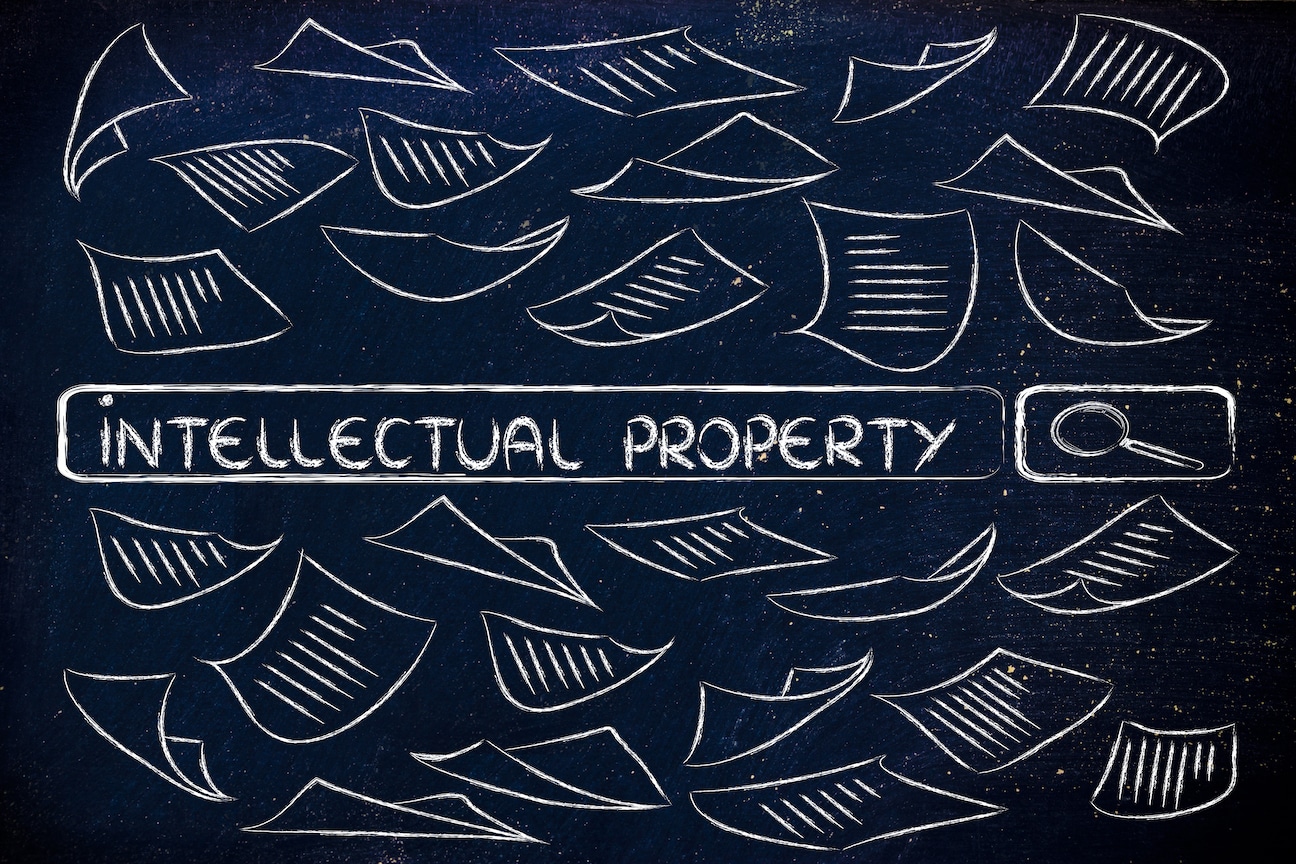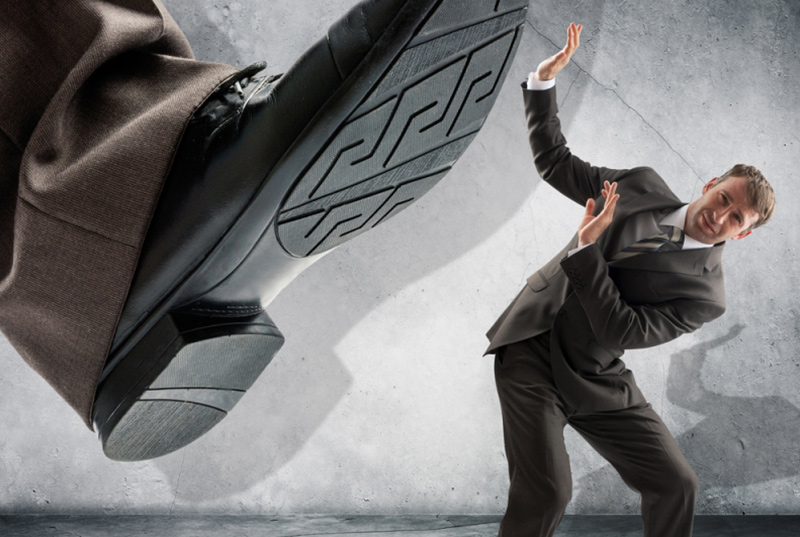
The Game of Trademark, Copyright, and Intellectual Property — Play or be Played | Clearing Misconceptions About IP
11/07/2018 By Justin Deschamps
by Justin Deschamps,
The issue of intellectual property is a contentious topic for many reasons, partially because the notion of “owning an idea” is generally an affront to freedom-minded people. Rightly so, given intellectual property laws have been abused by large corporations, like Monsanto, that sue farmers for having patented genetic material on their land—some claim, even if it wasn’t intentionally planted. Despite this, the current system of intellectual property can be used for good, and has by many small time content creators. Given the importance of this topic, addressing some misconceptions would be helpful.
This article is written for the person who believes no one should trademark their work because it depreciates its spiritual or ethical value. It also imparts clarity for those who recognize the benefit of IP protections but don’t understand the difference between similar subject matter crossover and actual plagiarism.
The Battlefield of Intellectual Property
The framework of intellectual property (IP), as it currently exists in the legal system, can be described as a fait accompli—a situation that is unfair but has to be dealt with.
If you create content, you either protect it using existing intellectual property laws, or you run the risk of being defrauded by someone who uses the system to their advantage.
This is partially the reason why IP controversies are akin to a battlefield. One may not want to fight for their work, but they’ll likely need to at some point in their careers.
This is the harsh and unfair reality content creators have to face in today’s world.
Creating an original work is a precious thing. People want to protect their work, they want to ensure that it isn’t stolen, distorted, or plagiarized by another.
What’s more, from a sharing information perspective, if you don’t protect your work, someone could steal it, and present it in a false way to the public, thereby destroying the value of your efforts before your work has a chance to generate a positive effect.
This has happened many times over the years.
If you really care about the information you’re trying to bring to the world, and you don’t protect it, there stands a real chance your work will be stolen and never see the light of day. Or worse, it will be misused and smeared to such an extent, no one will be interested in it.

Why does it have to be this way?
If the world were populated by people that understood the nature of trust, law, innovation, and respected the rights of others, the intellectual property system wouldn’t be designed the way it is. Similarly, if no one ever engaged in violence, particularly the government against its own people, then the 2nd amendment may not be needed either.
To be sure, the system isn’t perfect and was likely designed by nefarious legal scholars to ensure the powers that be could maintain a stranglehold on information. For information, to a slavery system dependent on occult or hidden knowledge, is a deadly threat.
[url=https://www.amazon.com/gp/product/189200528X/ref=as_li_tl?ie=UTF8&camp=1789&creative=9325&creativeASIN=189200528X&linkCode=as2&tag=justinnotary-20&linkId=3c2a7d1b6be4ac0a636615c3be278a85" \t "_blank][/url]
In essence, the world of ideas and content creation has become a war zone, where only those who learn how to fight strategically can get ahead. Of course, this isn’t an ideal situation, but it is a reality that must be faced if freedom minded world healers want to actually make sweeping changes.
Side note: By learning the law, which are the rules for how the universe works, we can work together more efficiently and wisely to overturn the powers that be. It’s their knowledge of the law, and our lack of it, that maintains the status quo.
How the Intellectual Property System Works
“What’s the big deal?” You might be thinking.
Why is it ever justifiable to claim ownership of an idea?
Because if you don’t, someone else could take your intellectual property.
In order to understand this, one needs to comprehend how intellectual property rights are managed in the existing system; that is, how does one actually claim to own an idea?
The way the current IP system works is based on first claim status.
Patents and trademarks are filed with the United States Patent and Trademark Office (USPTO), using various categories that assert how the IP is used in commerce or business. The evidence needed to prove that IP is, in fact, the property of the one filing it is a testimonial, meaning, you claim you are the owner.
 USPTO Headquarters
USPTO HeadquartersThere are other requirements as well, listed here:
- The trademark must be applied for under the actual owner’s name. The owner of the trademark is the entity that controls the nature and the quality of the goods and/or services sold or the services rendered under the trademark. The owner can be an individual. The owner can also be a partnership, corporation or association. If the owner is a corporation, then the applicant’s name is the corporation’s name, and the application is submitted by someone with the legal authority to act on behalf of said corporation, such as a corporate officer or an executive director, etc.
- The applicant must specify what type of entity it is (individual, corporation, etc.) and its national citizenship. The applicant is not required to have U.S. citizenship but everyone must state his, her, or its citizenship on a trademark application.
- The application must be based on actual use or a real intent to use the trademark in commerce. (Source)
Notice that the term “owner” isn’t well defined.
How does the USPTO really know if the person claiming the IP is really the owner?
The system works on a “first come first serve” basis, meaning whoever gets to the USPTO first, is assumed to be the owner. Whether or not they actually are isn’t a concern of the USPTO per se. A filer merely needs to demonstrate an intention to use the right secured by a patent or trademark in commerce, for some business purpose.
That said, it is possible to cancel a trademark or patent if it is discovered later that it was used by another in commerce beforehand. But doing so is a massive challenge and monetary effort, which is one reason why the system can be taken advantage of.
One would need to file an opposition with the Trademark Trial and Appeal Board, citing that they were, in fact, using the IP in commerce before the other claimant. In some instances, this process doesn’t work, either because of bureaucracy, or exorbitant legal costs associated with fighting a bogus filing from another person. There’s also the challenge of proving use in commerce, which isn’t always easy if records and evidence are lacking, like in a cash business.
[url=https://www.amazon.com/gp/product/1401943322/ref=as_li_tl?ie=UTF8&camp=1789&creative=9325&creativeASIN=1401943322&linkCode=as2&tag=justinnotary-20&linkId=2b46fc4399e881bae2dd54c03e5c50d2" \t "_blank][/url]
What does this mean in relation to a content creator?
It presents a serious challenge to any content creator. It means that if you fail to file claims on your IP before another does, you may not be able to secure the rights to it. This happens more than you might think. Countries steal IP from each other frequently. For example, “Total theft of US trade secrets accounts for anywhere from $180 billion to $540 billion per year.”
Do you think it’s possible for a small-time content creator to go toe to toe with a massive corporation like Viacom, Comcast, or Sony if their story gets stolen? Probably not. If you’re not making that much money from your IP to pay for defense, the likely, and common result, is to abandon it.
[url=https://www.amazon.com/gp/product/1401943322/ref=as_li_tl?ie=UTF8&camp=1789&creative=9325&creativeASIN=1401943322&linkCode=as2&tag=justinnotary-20&linkId=2b46fc4399e881bae2dd54c03e5c50d2" \t "_blank][/url]
A Case of Stolen IP and Why Using Existing Laws is a Strategic Necessity
Here’s an example stripped of specifics to protect the privacy of those involved.
- A content creator produced volumes of written materials, posting them online across over a dozen websites. They believed the information should be given to the world for free, using an open source model. The information is of central importance to improving the quality of life of all things living on the earth. They began distributing this material in 2005.
- In 2014, a former member of the organization decided to trademark the brand name with the USPTO, claiming they were the original owner.
- The USPTO granted the trademark, which was made under false pretenses, and the false owner began sending cease and desist orders to the original content creator.
- The original content creator decided to fight the case using the USPTO’s procedures. They filed an opposition themselves with all the necessary proofs of use in commerce prior to the false owners stated claims of use.
- The USPTO denied the opposition, citing a fault in the paperwork sent to the opposition office, essentially because a lawyer wasn’t used to prepare the opposition to ensure lack of errors. In effect, the USPTO ignored the fraud of the false owner by citing a technical reason for not taking action to restore the IP rights to the original owner.
- The opposition filing period expired, requiring the original owner to contact an attorney. The proposed legal fees were a minimum of $100,000 to sue the false owner.
- The original owner, lacking the funds to fight the false trademark, abandoned their IP and all their dreams of making the world a better place.
- The false owner continues to hold the trademark to this day, doing nothing with it.
It is an almost insurmountable challenge trying to defend your IP once someone has stolen it.

The USPTO is hardly a just and fair organization, evidenced by the fact it didn’t seem to care an imposter used the existing legal policies to defraud the original owner. Despite that, it does serve a valid purpose, no matter how broken it might be. It’s the best system available, until a new one is created to replace it.
There are strategic realities one has to deal with as a content creator. You either play the game of IP or you run the risk of having your content stolen.
How Are Trademarks Enforced?
Contrary to popular belief, the trademarking of a word, text, image, sound, smell, or anything else doesn’t mean the right holder can stop people from using it in general.
The right holder, per the legal powers given by the USPTO, or local laws, can only defend their trademark if harm has been done to the use of that right in commerce. In other words, unless your use of the word constitutes damage to a business, then you can use it without worry.
Here’s a fictional example.
“Coca Cola” is a phrase trademarked by The Coca Cola Company, they have the right to defend the brand, not the word itself.
What that means is you can walk down the street, saying “Coca Cola” all you want and you won’t violate their rights—you won’t have a lawyer pounding on your door. The same is true for copyright. Although copyright deals with entire texts or works rather than with branding and logos—the point stands: no one is going to sue you for quoting The Great Gatsby at length at a school function, or for covering Stairway to Heaven on your glockenspiel.
But, if you decided to start a pancake stand business, calling your premier flapjacks “Coca Colas,” that creates a brand or use in commerce controversy. The Coca Cola Company now has a right to defend their brand by issuing cease and desist orders. If you still keep using the phrase in your business, the company can sue you for damages and compel a judicial body to issue an order to legally stop you from using the phrase.
It should be noted that sometimes people think their IP was stolen when that isn’t actually the case.
Plagiarism is reproducing a work either by direct copying or use of ideas by passing them off as your own.
It’s obvious when someone does this as a direct copy. It isn’t so obvious when it’s merely ideas.
For example, the phenomenon of simultaneous or multiple discovery, is when two or more people invent or discover the same thing completely independently of each other. In such cases, who is the person who “owns” the idea?
If you decided to draw a butterfly and five other people did too because there was a seasonal migration of butterflies moving through the area, and all the images looked essentially the same, who has the right to trademark their image?
In another example, consider the nature of scientific discovery or the search for truth.
If the truth is one, then it stands to reason each individual has a unique perspective on that one truth. If four people decide, at the same time, they want to research how a certain protein is encoded in the genome of a fruit fly, and make that discovery all at the same time, who made it first? Who’s discovery is it?
Lastly, consider a person who wants to tell a story of their experiences.
Let’s say they traveled to Europe and wanted to write about all the ancient sites they visited. It just so happened that two other people had the same idea at the same time. All three of them see the same sites, write about the same history, and have similar experiences with the locals. One writer publishes their book before the other two. Then, the other writers publish their works. The first writer, upon discovering the other two books, might think that their story was plagiarized, when in fact, they were completely original works, just similar in subject matter.
Clearly, things can get very complicated depending on the situation at hand. This is part of the difficulty involved in IP litigation.
It is always the duty of a content creator to use proper sourcing, especially when they gained knowledge of an idea from someone else’s work.
[url=https://www.amazon.com/gp/product/B01FGMTF02/ref=as_li_tl?ie=UTF8&camp=1789&creative=9325&creativeASIN=B01FGMTF02&linkCode=as2&tag=justinnotary-20&linkId=d0dea931eedb62fdbce01bc0f997c7e1" \t "_blank][/url]
False IP Theft Claims
It’s also crucially important that if you suspect your IP was stolen or plagiarised, you perform the due diligence required to confirm this happened before making any public accusations.
Suspicion of harm isn’t actual harm until it can be proven. False accusations of harm create real harm to a person’s reputation.

A person has a sacred right to defend their reputation. If you defame that by making a false accusation, this constitutes serious damage that you are liable for, legally and karmically.
Any damage would ideally need to be corrected by citing you were wrong and attempting to restore status in those you campaigned to. Additionally, some public statement
Stealing Content is Big Business
Hollywood and various other entertainment companies have been stealing stories for a long time. Of course, they usually ensure a story is changed enough to avoid any lawsuits but since most people don’t understand the legal necessity of IP, direct theft isn’t necessarily unheard of either.
If you don’t protect your IP, and defend it using the law, it’s basically sitting on the side of the road waiting to be claimed by another.
The ufology community—wherein all manner of fantastic encounters with extraterrestrials, UFOs, time travel, and secret government programs are frequently discussed—there is a lot of IP theft on the part of Hollywood.
People have been curious about UFOs since the 1950s. If one examines the accounts of various experiencers as compared to movies released, it seems that many of the big films featuring aliens were drawing from allegedly real experiences.
The situation has gotten worse in recent years, as interest in aliens, secret government projects, and UFOs has exploded, evidenced by the massively popular History Channel series Ancient Aliens.
This suggests that the need to protect one’s IP rights is more important than ever.
Content creation on the internet gave rise to a whole new landscape of IP theft potential. In many cases, media is created without any legal protections or it is owned by the provider, like YouTube or Facebook.
[url=https://www.amazon.com/gp/product/0765807610/ref=as_li_tl?ie=UTF8&camp=1789&creative=9325&creativeASIN=0765807610&linkCode=as2&tag=justinnotary-20&linkId=df972dcaf4b021e896348589071811cf" \t "_blank][/url]
Is there a Spiritual Solution?
Likely many reading this article are of the opinion that the legal system, and IP laws, are just “part of the matrix of control,” and if we simply stopped paying energy into it, it would all collapse.
But in this case, that isn’t true.
Some things can be starved of energy as a means of creating change. But some things cannot. Some things can only be reformed from within or replaced by a better system.
Changing large-scale systems that meet the needs of people should be done carefully.
For example, if you want to reform how food is distributed to supermarkets, coming up with a viable replacement first would be better than destroying the system without any plan for replacing it.

The fact is, intellectual property and defending it is a real need.
In this sense, one could argue the spiritual solution is to come up with a system that is better, and more just, than the existing one. Then one could work to bring that better system online as the old one is dismantled.
What would be required to do this?
Knowledge of the realities and factors at play. Namely, one needs to understand jurisprudence (the philosophy of law) and the needs of the people as they interact in business.
Once a solution has been identified in consciousness, it takes people power to make it a reality. It takes unity.
Setting aside differences and working together so as to change the system is likely the best option. This is especially true for the legal system and government because it is supported by the will of the people. Of course, how many people exercise that power and know how to do so wisely, ethically, and with knowledge of the law?
[url=https://www.amazon.com/gp/product/0765807610/ref=as_li_tl?ie=UTF8&camp=1789&creative=9325&creativeASIN=0765807610&linkCode=as2&tag=justinnotary-20&linkId=df972dcaf4b021e896348589071811cf" \t "_blank][/url]
Conclusion
The open source model works well for some things. But in other cases, one needs to protect information.
There’s no doubt that things aren’t ideal on our world. But we have plenty of tools to deal with these challenges.
History shows us what people can do when they work together.
During times of hardship, the mutual burdens we suffer give us common ground. These shared burdens give us an avenue for empathy and compassion that can ultimately lead to a better way of life for all.
Yet in order to make steps forward, we often need to be strategic, we have to get our hands dirty to a certain extent.
Being receptive to the truth invariably gives rise to solutions that make things better. Receptivity to the reality of IP gives us the tools we need to protect information while also highlighting the opportunity to create a better system. If we choose, we can make that better system through our dedication to truth and its application in life.
– Justin
The preceding is a Stillness in the Storm original creation. Please share freely. About The Author
Justin Deschamps has been a truth seeker all his life. He studies physics, psychology, law, philosophy, and spirituality, working to weave these seemingly separate bodies of information into a holistic tapestry of ever expanding knowledge. Justin is a student of all and a teacher to some. He humbly seeks those who are willing to take responsibility for making themselves and the world a better place. The goal of his work is to help himself and others become better truth-seekers, and in doing so, form a community of holistically minded individuals capable of creating world healing projects for the benefit of all life—what has been called The Great Work. Check out his project Stillness in the Storm to find some of his work. Follow on Twitter @sitsshow, Facebook Stillness in the Storm, and minds.com.
Read more articles by Justin Deschamps.
Like our work? Support this site with a contribution via Paypal, cryptocurrencies, or Patreon.
This article appeared first on Stillness in the Storm.
This article (The Game of Trademark, Copyright and Intellectual Property — Play or be Played | Clearing Misconceptions About IP) originally appeared on StillnessintheStorm.com and is free and open source. You have permission to share or republish this article in full so long as attribution to the author and stillnessinthestorm.com are provided. If you spot a typo, email corrections@stillnessinthestorm.com.
Not sure how to make sense of this? Want to learn how to discern like a pro? Read this essential guide to discernment, analysis of claims, and understanding the truth in a world of deception: 4 Key Steps of Discernment – Advanced Truth-Seeking Tools
Stillness in the Storm Editor’s note: Did you find a spelling error or grammar mistake? Send an email to corrections@stillnessinthestorm.com, with the error and suggested correction, along with the headline and url. Do you think this article needs an update? Or do you just have some feedback? Send us an email at sitsshow@gmail.com. Thank you for reading.
Source:
Thanks to Justin at: https://stillnessinthestorm.com






 Sat Mar 23, 2024 11:33 pm by globalturbo
Sat Mar 23, 2024 11:33 pm by globalturbo

